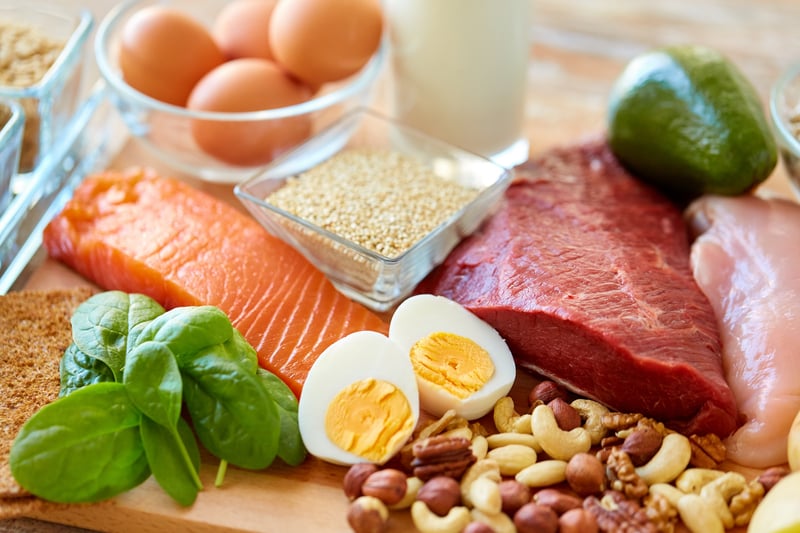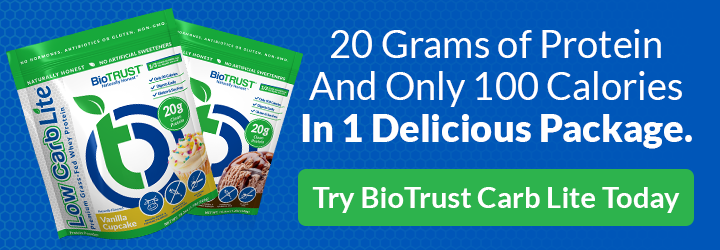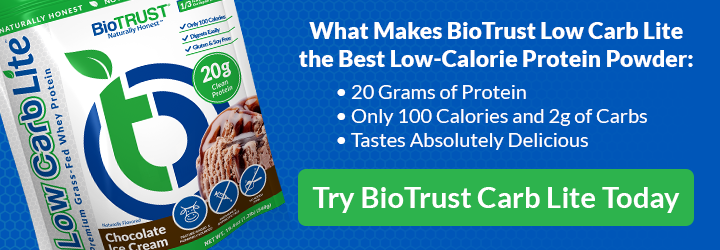7 Subtle Signs You’re Not Eating Enough Protein

“Listen to your body” is one of the most common pieces of advice in the realm of general wellness. The advice reaches far and wide as body awareness is crucial to improved nutrition, exercise, and total body health. But often, this can be easier said than done. You can listen to your body all you want, but if you don’t know how to translate what it’s saying, you could be giving it the wrong things. This is especially true when it comes to your body’s need for protein. It’s surprising to find how frequently we are not eating enough protein.
After all, we don’t often think of Americans suffering from a protein deficiency. However, it is not at all uncommon to have low protein levels.
Since optimal protein intake varies from person to person, there is no one set amount of protein a person should eat. This can make it difficult to know when your body is or is not eating enough protein.
Adding to the frustration, the body’s signals for more protein can be confusing and could mean a hundred different things, making them hard to pinpoint. And far too often, the signs the body gives are so subtle, we may not even recognize the body is calling out. If you experience any of the subtle signs below, it may be time to re-evaluate your protein intake.
7 Subtle Signs You’re Not Eating Enough Protein
1. You’re hungry
Can’t seem to kick that feeling of hunger? It could be because your body has a hankering for more protein. Protein increases your feelings of fullness because it takes longer to break down and is in your system longer.
2. You Have Cravings
Food cravings are fairly normal, but a lack of satisfaction or craving other foods after a meal could be a sign you are not eating enough protein. Adequate amounts of carbohydrates and protein are needed throughout the day to make the neurotransmitters and hormones that provide satisfaction.
3. You Are Healing Slowly
If you find your scrapes and cuts are taking an unusually long time to heal, it could be a sign that you are running low on protein. Proteins are integral to the function of our immune systems and to the healing of wounds.
4. You’re Fatigued
Feeling sluggish could be due to several reasons—whether not enough sleep or maybe just needing to get some more protein. However, feeling consistently more tired is a common indication that you’re simply not getting all the nutrition you need.
5. You’re Jittery
If you put down the coffee hours ago but still feel jittery or on edge, it may be low protein that’s to blame. Jitteriness is a sign to watch out for when determining if you need more protein in your life because of protein’s ability to help regulate blood sugar.
6. It Takes a Long Time to Recover
With a steady workout regimen, any number of things could be causing your progress to stall, but protein missing from your diet could be a major cause. When you lack protein, proteins that would have been used for muscle building and repair are instead used for more vital tissues. Therefore, when you break down your muscles during a workout, they may simply wear away instead of building up stronger.
7. You Can’t Sleep
If you cannot get to sleep or find yourself waking up throughout the night, it may be related to your diet. Too little protein means too little tryptophan, which can affect sleep and melatonin production.
Although these symptoms can be subtle, failing to recognize them can wreak havoc on one’s day, especially as it adds up over time. And unfortunately, many of these symptoms have become so common, we often go through our daily routines without even acknowledging or understanding them. Lucky, these all have the possibility of being resolved through one simple fix: eating more protein.
How Much Protein Do You Need?
While there’s no perfect measure, there are quite a few useful guidelines to help you get started when it comes to understanding your protein needs. It is regularly recommended that the average individual consume 0.6 – 1.0 gram of protein per pound per day for general health.
Nevertheless, this number can vary based on many factors. For instance, individuals who are physically active, are pregnant or breastfeeding, or who have certain medical conditions may need more protein.
Protein can be found in animal as well as plant-based foods. In fact, many foods are surprisingly high in protein. Nonetheless, here are just a few common food options, which are jam-packed with essential protein:
- Meat, poultry, and eggs: e.g., lean cuts of beef, pork loin, skinless chicken and turkey
- Fish and seafood: e.g., salmon, tuna, cod, shrimp
- Dairy foods: e.g., yogurt, milk, cheese, cottage cheese
- Legumes: e.g., beans, split peas, lentils, soy
- Nuts and seeds: e.g., walnuts, almonds, chia seeds, pumpkin seeds
- Protein powder: e.g., whey, casein, pea, pumpkin, and hemp
So, whether you choose to get your protein from lean meats, eggs, plant-based sources, or a protein supplement, the key is to ensure you’re providing your body with the protein it needs to stay happy and healthy.







